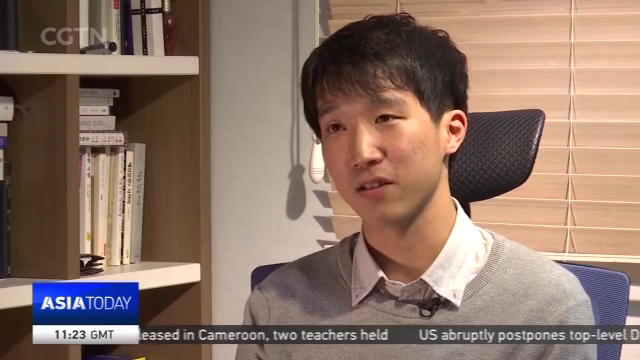
20:21, 07-Nov-2018
South Korea Military Service: Supreme Court says moral, religious beliefs valid reasons to refuse military service
Updated
20:12, 10-Nov-2018
02:14

Pak Sang-wook is a convicted criminal and served 14 months in prison. But unlike most other prisoners, Pak went to jail voluntarily. That's because in 2016, like all other South Korean men his age, Pak received an order to enlist in the military. When he refused to oblige, an arrest warrant was issued and he surrendered himself to authorities.
PAK SANG-WOOK CONSCIENTIOUS OBJECTOR "I consulted many people, I read many books and watched many videos. I tried to organize my thoughts in writing. But the part of me that wanted to erase these thoughts and the part that wanted to discover more kept colliding until at one point I had no choice but to object to the military. I thought it was the right thing to do."
SHANE HAHM SEOUL "In a landmark 9-4 vote, the Supreme Court recently ruled that punishment for those refusing conscription is an excessive constraint on an individual's freedom of conscience. This comes just months after the Constitutional Court ruled that alternative ways to serve must be provided for conscientious objectors."
Critics say the court rulings put national security at risk. They say rejecting military service on moral grounds is subjective and demoralizing to enlisted soldiers. That's why defense officials are reportedly considering a plan to deter malicious draft dodgers. One option would be to work in the prison system for twice the duration of compulsory military duty.
TOM RAINEY-SMITH COORDINATOR, AMNESTY INTERNATIONAL KOREA "So very clearly, we want an alternative service established that's in line with international human rights standards, meaning it's of a comparable length to existing military service, we want to see a diverse range of fields where young men can work in, and it should be under full civilian control."
Pak hopes for the day that South Korean society can simultaneously preserve national security and protect an individuals' freedom of conscience.
PAK SANG-WOOK CONSCIENTIOUS OBJECTOR "Many Western countries have acknowledged conscientious objection in times of war. They have gone through the process amid more difficult periods. It's in times like this that society must set its standards of conscience and reflect on civic awareness."
Pak doesn't regret his decision to choose a prison cell over military barracks. He's confident because he can rest assured his conscience is clear.

SITEMAP
Copyright © 2018 CGTN. Beijing ICP prepared NO.16065310-3
Copyright © 2018 CGTN. Beijing ICP prepared NO.16065310-3